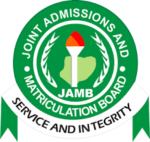How scholastics, others see JAMB cut-off marks
The Joint Admission and Matriculation Board (JAMB), during its strategy meeting hung on July 21, fixed the base cut-off score for induction into the country’s colleges at 140 for the 2022/2023 scholarly meeting.
It put that of Polytechnics at 120, and Colleges of Education at 100.
Two years back, it had supported 160 as a cut-off mark for 2020/2021 college confirmations.
The board additionally endorsed 120 as removed marks for Polytechnic and 100 for the School of Education and Innovative organizations.
Last year, it reported 140 as the cut-off mark for all government, state, and confidential Universities; 100 for polytechnics; and 80 for schools of training in Nigeria for 2021 affirmation.
The News Agency of Nigeria (NAN) reports that, in declaring the current year’s removed imprints, the assessment body expressed that of the over 1.7 million applicants that sat for the assessment, just 378,639 scored 200 or more.
The pattern of the cut-off marks throughout the long term, dropping on account of colleges to 140, of the complete 400 imprints, has evoked blended responses.
Some depict the bringing down of the cut-off, the benchmark for situation of competitors into the country’s organizations of higher learning, as troubling, with suggestions for schooling norms.
Others, be that as it may, suspect something, saying it isn’t the sole determinant.
Prof. Oluwole Familoni, prompt past Deputy Vice-Chancellor (Academics and Research), University of Lagos, accepts that low profile off imprints wouldn’t empower rivalry.
He expressed that there was a need to guarantee that competitors are tested to get the best for the colleges particularly, as well as other tertiary establishments.
This, as indicated by him, will guarantee that the best are conceded and fit for reason, during and after graduation.
Prof. Ibrahim Bakare, Chairman, Academic Staff Union of Universities, Lagos State University, Ojo (ASUU-LASU), accepts the new JAMB trim off is an impression of the presentation of the competitors.
Bakare, likewise Director of Consult, LASU, said that the low profile off had serious ramifications on the nature of understudies being delivered right now.
“This suggests that the public authority needs to do a ton in propelling the educators first in our optional schools and giving an empowering climate to non-public schools to contend well.
“Government ought to likewise prepare and retrain our educators in state funded schools and enough prepare the research centers to upgrade the presentation of the understudies.
“More finances should be allotted in genuine terms to the schooling area, immediately, and the government assistance of educators ought to likewise be improved assuming the exhibition of understudies is to be upgraded,” he said.
Bakare said that instructors’ appraisals, legitimate quality affirmation components, and showing methods required quick consideration from the public authority.
“Showing climate should likewise be helpful for work with a smooth growing experience.
” State of crisis ought to be announced in our schooling area in Nigeria,” he said.
Yet, Chief Adeolu Ogunbanjo, Deputy National President, National Parent Teacher Association of Nigeria (NAPTAN), places that cut-off imprints should be visible just as a manual for college confirmation, however not in entirety.
He said that the foundations actually directed their own inside assessments, via the Post Unified Tertiary Matriculation Examination.
“Note that understudies getting entrance into any college should have a blend of optional school testament assessments result, JAMB score, and the specific college inside led assessment.
“I think and I need to trust that the insight Prof. Ishaku Oloyode utilized there, was to guarantee that college confirmation is presently adaptable to guarantee that it takes more understudies, especially now that a great deal of things are upsetting schooling in the country.
“Yet, bringing the slice off down to 140 doesn’t imply that an understudy who tries to concentrate on Engineering can do as such; but we wouldn’t fret the step, as guardians,” he said.
Mr Andrew Agada, Principal, King’s College, Lagos is of the view that the up-and-comers’ presentation in the assessment might have been essential for the justification behind the cut-off marks reported.
He noticed that some time back, it used to be higher for colleges and other tertiary foundations.
“Colleges used to be 180 in any event, yet getting to this level at the present time, implies something should be generally off-base some place,” he said.
Agada praised one of his understudies that partook in the assessment and emerged with a complete score of 355.
He noticed that it was no mean accomplishment, adding that it was a respectable thing to the school and should have been praised.
Mr Sunday Fowowe, National President, Association of Nursery and Primary Education Instructors in Nigeria (ANPEIN) communicated worry at the cut-off marks during the current year.
Fowowe said that the horrible showing of up-and-comers in the current year’s assessment was conceivably because of the inquiries being over the educational plan or prospectus given to them to study.
“Likewise, perhaps lethargy with respect to the competitors, for which they didn’t read up well for the assessment, could likewise be a component.
“As scientists, we are constrained by this improvement to do a study about those that scored under 180, that will get entrance into the different colleges.
“We should do a four-year longitudinal investigation of their presentation in their future divisions, to check whether there is a relationship between’s JAMB execution (scores) and undergrad scholastic execution,” he said.
To Dr. Nasir Fagge, a previous President of the Academic Staff Union of Universities (ASUU), there is a requirement for a survey of the law laying out the JAMB.
As indicated by him, permitting the assessment body to conclude general cut-off marks for the country’s tertiary foundation should be casted off, on the off chance that the framework is to accomplish its order.
“This is something we have been drawing in the public authority on, before. Where on earth will you have a specific outfit to figure out what is best for foundations of learning concerning confirmation?
“The training is unfamiliar to college independence.
“The occupation of the board ought to end with leading the assessment. All it needs to do from there on is to examine the outcomes and handover to the separate organizations of higher learning, to conclude what they need.
“These foundations will then frame a board that will do different checks, come to an understanding and afterward hand it over to the Senate for ultimate conclusion.
“The demonstration of concluding who is conceded into any college, for example, ought to lie exclusively with the Senates of the different colleges.
“They ought to have the option to take a gander at the overall exhibition of the competitors and figure out where to fix their cut-off marks and not JAMB.
“As I would see it, I dare say that this kind of training by the assessment body doesn’t energize legitimacy and limit,” the unionist said.






